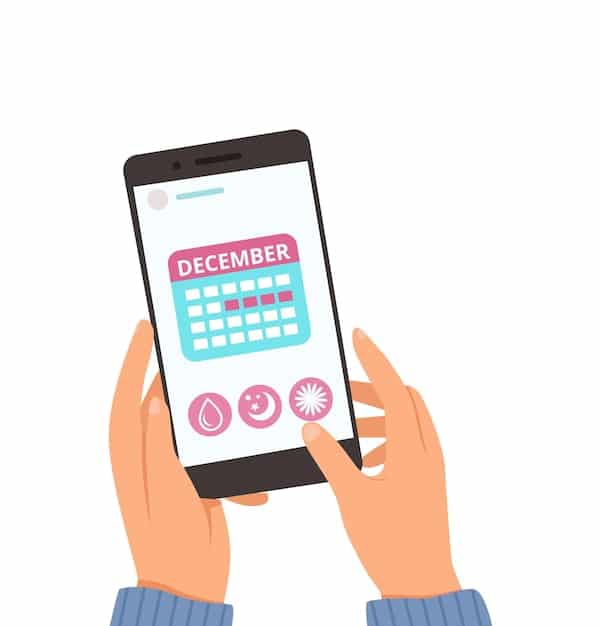Boost Your Credit Score: Secrets to a 50-Point Increase in 3 Months

Improving your credit score by 50 points in 3 months involves strategies such as reviewing credit reports for errors, reducing credit utilization, making timely payments, and avoiding new credit applications to ensure a better financial standing.
Want to improve your credit score by 50 points in 3 months? Discover personal finance secrets and actionable steps to boost your creditworthiness quickly and effectively.
Understand Your Credit Score
Your credit score is a numerical representation of your creditworthiness. It influences various aspects of your financial life, from loan approvals to interest rates. Understanding what factors affect your credit score is the first step toward improvement.
Knowing your credit score allows you to identify areas for improvement. Several factors contribute to your credit score, which we will discuss below.
Key Factors Affecting Your Credit Score
Understanding the components of your credit score is vital for knowing your plan of attack. Here are the primary elements that influence your creditworthiness:
- Payment History: This is the most significant factor. Consistent on-time payments demonstrate reliability.
- Credit Utilization: The amount of credit you use compared to your total available credit. Keeping this low is crucial.
- Credit Age: The length of time you’ve had credit accounts. Older accounts generally boost your score.
- Credit Mix: Having a variety of credit accounts (e.g., credit cards, loans) can positively impact your score.
- New Credit: Opening too many new accounts in a short period can lower your score.

By focusing on these key areas, you can strategically improve your credit score by 50 points in 3 months.
Review Your Credit Report for Errors
Your credit report contains information about your credit history. Mistakes on this report can negatively affect your credit score. Reviewing your credit report regularly allows you to identify and correct any inaccuracies.
Errors can range from incorrect payment dates to accounts that don’t belong to you. Here’s how to check your credit report.
How to Obtain Your Credit Report
You can get a free copy of your credit report from each of the three major credit bureaus – Experian, Equifax, and TransUnion – annually. Visit AnnualCreditReport.com to access your free reports.
- AnnualCreditReport.com: This is the official website to obtain your free credit reports.
- Experian, Equifax, and TransUnion: You can contact each bureau directly, but using AnnualCreditReport.com is easier.
Identifying and Correcting Errors
Once you have your credit reports, carefully review them for any inaccuracies. If you find errors, dispute them with the credit bureau that issued the report.
- Incorrect Payment Dates: Make sure all payment dates listed are accurate.
- Accounts Not Belonging to You: Check for any unfamiliar accounts.
- Incorrect Personal Information: Verify your name, address, and other personal details are correct.
Correcting errors could significantly improve your credit score by 50 points in 3 months.
Reduce Your Credit Utilization
Credit utilization, the amount of credit you use compared to your total credit limit, significantly impacts your credit score. Keeping your credit utilization ratio low can lead to a higher credit score.
Ideally, you should aim to keep your credit utilization below 30%. Here are some strategies to achieve this goal.
Strategies to Lower Credit Utilization
Lowering your credit utilization involves actively managing your spending and credit balances. Here are some effective methods:
- Pay Down Balances: Paying down your credit card balances is the most direct way to lower your credit utilization.
- Increase Credit Limits: Requesting a credit limit increase can lower your utilization ratio without changing your spending habits.
- Use Multiple Cards Strategically: Spreading your spending across multiple cards can help keep the utilization on each card low.
By strategically reducing your credit utilization, you can substantially improve your credit score by 50 points in 3 months.
Make Timely Payments
Payment history is a crucial factor in determining your credit score. Consistent on-time payments demonstrate your reliability as a borrower. Setting up systems to ensure you never miss a payment is essential.
Missing payments, even by a few days, can negatively impact your credit score. Here’s how to ensure timely credit card payments.
Setting Up Payment Reminders and Automation
Utilizing technology to manage your payments can significantly reduce the risk of late payments. Consider these tools and strategies:
- Payment Reminders: Set up reminders on your phone or calendar to notify you of upcoming due dates.
- Automatic Payments: Enroll in automatic payments through your bank or credit card issuer.
What to Do If You Miss a Payment
If you accidentally miss a payment, take immediate action to mitigate the damage:
- Contact the Lender: Contact your lender as soon as possible to explain the situation and make arrangements to pay.
- Set Up Future Automation: Use the mistake as a lesson to set up automated payments to avoid future lapses.

Ensuring timely payments is a simple yet effective way to improve your credit score by 50 points in 3 months.
Avoid New Credit Applications
Opening too many new credit accounts in a short period can negatively affect your credit score. Each credit application results in a hard inquiry, which can temporarily lower your score. Avoiding unnecessary credit applications is a smart strategy.
Applying for credit only when necessary helps maintain a healthy credit profile. Here’s what to keep in mind.
Why New Credit Can Lower Your Score
Understanding why new credit applications can lower your score can help you make informed decisions. Here are the primary reasons:
- Hard Inquiries: These inquiries stay on your credit report for two years and can slightly lower your score.
- Reduced Average Account Age: Opening new accounts lowers the average age of your credit accounts, which can negatively impact your score.
Alternatives to Opening New Credit
If you need more credit, consider alternatives to opening new accounts:
- Request a Credit Limit Increase: This can increase your available credit without adding a new account.
Being strategic about new credit applications is vital to improve your credit score by 50 points in 3 months.
Consider Secured Credit Cards or Credit-Builder Loans
If you have a limited or damaged credit history, secured credit cards and credit-builder loans can be valuable tools for building credit. These options provide a way to demonstrate responsible credit management.
These tools can help you establish or rebuild your credit. Here’s how they work.
How Secured Credit Cards Work
Secured credit cards require a cash deposit that serves as your credit limit. By making timely payments, you demonstrate creditworthiness.
- Deposit Requirement: The deposit typically equals your credit limit.
- Reporting to Credit Bureaus: Your payment activity is reported to the major credit bureaus, helping you build credit.
How Credit-Builder Loans Work
Credit-builder loans are designed to help individuals with limited credit histories establish a positive payment record. The loan amount is often held in a savings account and released to you after you make all the payments.
- Loan Structure: You make fixed monthly payments over a set period.
- Reporting to Credit Bureaus: As with secured credit cards, your payment activity is reported to the credit bureaus.
Using secured credit cards or credit-builder loans strategically can help you improve your credit score by 50 points in 3 months.
| Key Action | Brief Description |
|---|---|
| 🔍 Check Credit Report | Identify and correct any errors on your credit report to improve your score. |
| 💳 Lower Credit Utilization | Keep your credit utilization below 30% by paying down balances or increasing credit limits. |
| 🗓️ Timely Payments | Set up reminders and automate payments to ensure you never miss a payment date. |
| 🚫 Avoid New Credit | Refrain from opening new credit accounts to prevent hard inquiries from lowering your score. |
Frequently Asked Questions
▼
You should check your credit report at least once a year. By law, you are entitled to one free credit report annually from each of the three major credit bureaus: Experian, Equifax, and TransUnion.
▼
A good credit utilization ratio is typically below 30%. Aiming to keep your credit utilization at or below this level indicates responsible credit management and can positively influence your credit score.
▼
Late payments can affect your credit score as soon as they are reported to the credit bureaus, which is typically after 30 days past the due date. The later the payment, the more significant the negative impact.
▼
Closing a credit card can have mixed effects. It can lower your available credit, potentially increasing your credit utilization. It’s generally better to keep unused cards open, especially if they have no annual fees.
▼
A hard inquiry occurs when a lender checks your credit report to make a lending decision. Each hard inquiry can slightly lower your credit score, especially if you have multiple inquiries in a short period.
Conclusion
Improving your credit score by 50 points in 3 months is achievable with the right strategies and consistent effort. By reviewing your credit report, reducing credit utilization, making timely payments, and avoiding new credit applications, you can significantly boost your creditworthiness and unlock numerous financial opportunities.





